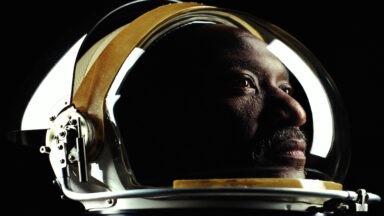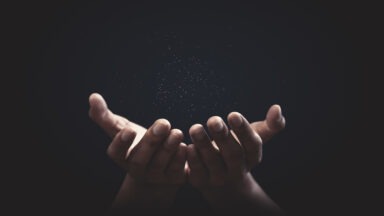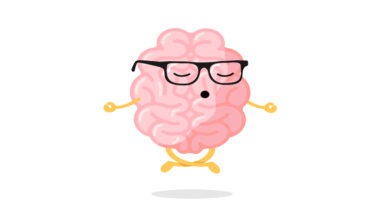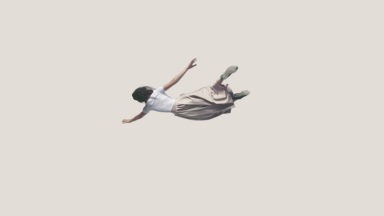Expand Your Creativity: 5 Spiritual Principles of Intuitive Painting
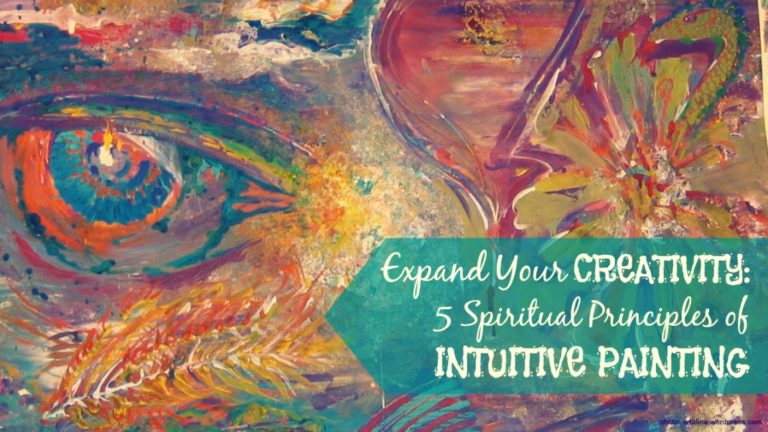
I feel blessed in the creativity department. I love to paint, dance, sculpt and chant. I know that many people don’t feel this way, though. When I invite them to a workshop in creativity (usually centered around painting), the response is one of embarrassment because of the potential “self-exposure” of the final painting. We think we are being judged, we don’t like the result, it didn’t turn out the way we thought it was going to turn out, what we produce looks child-like, etc.
Our insecurities as human beings can be triggered by something as small as attempting to play with paint. This feeling probably holds true for 90 percent of the population. Even if we really think the result is pleasing, we can be shy… It is creativity in action that shows a small piece of who we really are. The subconscious mind becomes more conscious, based on what comes out, and what is happening in our minds can also be revealed when painting with intention.
Like anything in life, we can simply “do” it, or we can take the principle of meditation and apply it to what we are doing. That is, set an intention to the action, or consecrate the action in the name of the divine, to make it more purposeful.
It is this methodology that has lead to Intuitive Painting. It has been the combination of meditation, development of my own intuition, and setting purposeful intention that has completely changed my style of painting, from one that was of tangible renditions to more colorful, lively and more aesthetically pleasing pieces.
What starts coming out when a person begins to train in both meditation and different painting techniques will often begin to be seen as child-like. They may be held by societal conditioning and the perceived notion that we are now adults, and should act “mature.” A messy painting done with our fingers simply cannot be seen as a representation of maturity.
It is this mess though, that is needed not only to de-condition us from how we think we should act (which generally leads to less fun in life), but is also required as a process in which to forget about what you think you are going to paint and how it is going to look.
Drawing something before you actually paint it, like a paint-by-number, is not the point of Intuitive Painting, or meditative and intuitive creative development. The point is the let go of the outcome and a focus on going deeper into process, looking internally upon the self to reveal what may be repressed. Inner reflection and freedom of expression happens through meditation.
Meditation and its continued practice can be the largest altering factor in people’s lives. It is meditation and learning how to combine it artistically in almost everything I do that assisted in having the confidence to be bolder in the energy of my painting, and also to truly live out my dreams.
If you are now wondering about the why’s and how’s of meditative painting, try not to “think” about it too much. One of the things that will happen with meditation in your life is that you will finally learn how to stop thinking, and move into the realm of experiencing – the rational to the unknown, in-the-moment experience.
Try to consistently bring yourself back to this concept when you are painting; be in the moment, not worrying about the outcome. Something magical will eventually happen, in your meditation, in your painting, in your life, if you follow these simple principles:
Totality
Be total in every action, especially when you’re painting.
Presence
Be in the moment. Don’t think about what you couldn’t paint before, or what it’s going to look like.
Observation
Observe what’s happening in the mind, and what’s happening in your painting. Take breaks to do this and meditate by starring at the middle of your painting, then close the eyes as if you were still starring at the painting. Try to remember what you were looking at with eyes open.
Non-Judgment
Make no judgment, for judgment limits everything, and perpetuates more judgment. Enjoy every moment of change while you continue to paint.
Intuition
Intuition-over-mind: make the attempt to reach a “no-mind” state while you are in the process of creating something. Take any preconceived ideas of what it might end up looking like and simply “go with the flow.”
A few more tips for Intuitive Painting: Only finish when you are happy. If you are not happy with how it looks, keep painting. Use acrylic paints; the paint covers what is underneath. If you are going to use black, which is a dark energy, wait to use it until the final touches, for emphasis rather than a full feel. We are doing this not only to develop creativity, but also to raise our energy through the process and heal what may be hidden in the body or the mind. Positivity generates more positivity, so see each painting session as a learning opportunity and a time for deep reflection and expression. High intentions will yield high results.
Sacrifice as a Catalyst for Rebirth and Bliss in Joseph Campbell's Hero's Journey

Joseph Campbell is one of the most influential writers, philosophers, and professors in history. His work on mythology has taken native stories beyond their face value and deep into the human psyche, where they resonate with the core of who we are.
Campbell’s life’s work brought countless people across the world in touch with the collective unconscious that underlies our every thought and motivates us to seek happiness. His phrase “follow your bliss” is now a household prompt, thanks to a series of interviews with celebrated journalist Bill Moyers in the early ‘90s. Gaia members can now experience this timeless discussion, listening to episodes discussing “The Hero’s Adventure”, “Sacrifice and Bliss”, and more.
Campbell’s teachings applied the lessons of heroes and metaphors of mythology to our own lives. “A myth is not a lie,” he famously said, despite this commonly misused definition. Rather, a myth is a story meant to turn the mind inward to reflect upon itself and reveal the essential truths of reality and our relationship to the transcendent.
As Campbell explains in his series of interviews with Moyers, myth is often constructed as a hero’s journey — a pivotal course of events that slowly test the story’s protagonist and push them to the next step of unfoldment — toward transcendence. Each obstacle the hero experiences is a reflection of himself, as he is moved one step closer to sacrifice the egoic sense of self to the greater good, which is total consciousness.
When we study mythology, Campbell taught, we find the theme of sacrifice to be all-important. We must let go in order to receive what is already present. Campbell said, “A hero is someone who has given his or her life to something bigger than oneself.” The hero sacrifices his lower nature for his higher nature, and his safety for the one he rescues, or perhaps an object of desire for a noble cause.
Campbell taught that sacrifice is a theme that runs through all things natural — death (the sacrifice of a living being) gives way to new life in an ever-continuing cycle. But death is often metaphorical and may be the death of a habit, a pattern of thinking, or an attachment to something. Or, he said, “When you make the sacrifice in marriage, you’re sacrificing not to each other but to unity in a relationship.”



